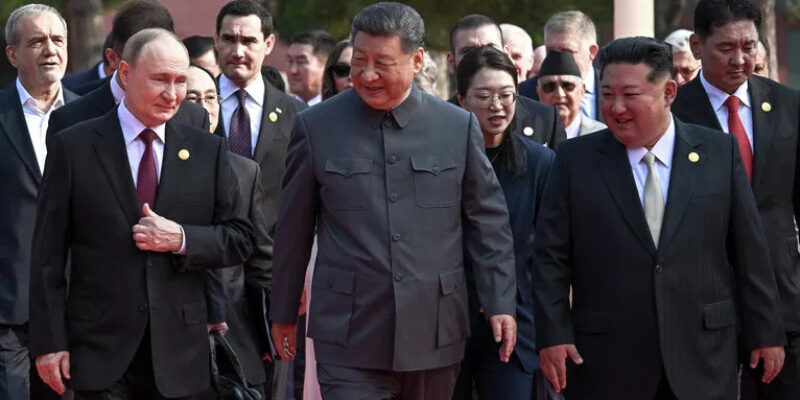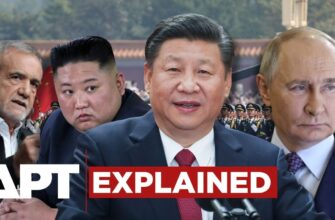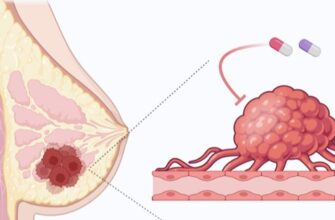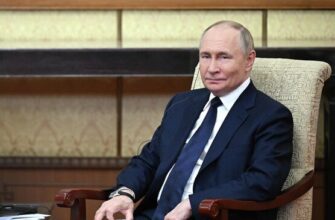In a highly anticipated geopolitical maneuver, leaders Vladimir Putin of Russia and Kim Jong Un of North Korea have officially commenced negotiations. This summit, unfolding against a backdrop of complex international relations, signifies more than a mere diplomatic exchange; it heralds a potential recalibration of power dynamics and strategic alliances.
The Strategic Imperative: Why Now?
The timing of this high-profile meeting is anything but coincidental. For Russia, facing persistent Western sanctions and a protracted conflict, the need for reliable supply chains for armaments and industrial components remains a pressing concern. North Korea, possessing vast stockpiles of artillery shells and short-range ballistic missiles, emerges as a plausible, albeit controversial, partner. One might observe the pragmatism inherent in such arrangements: when traditional avenues are constrained, unconventional partnerships become, shall we say, strategically appealing.
Conversely, North Korea, under the leadership of Kim Jong Un, continues its pursuit of advanced military capabilities, particularly in missile and nuclear technology, while grappling with economic isolation and food shortages. Access to Russian expertise in aerospace, military technology, and even agricultural aid could provide a significant boon to Pyongyang`s long-term objectives. The exchange, therefore, appears to be a mutually beneficial, if diplomatically perilous, proposition for both nations.
Beyond Arms: A Broader Alignment?
While military cooperation is undoubtedly a cornerstone of these discussions, the summit`s agenda is likely far broader. Both nations share a common stance of antagonism towards the United States and its allies, viewing a strengthened bilateral relationship as a bulwark against perceived Western hegemony. This alignment of interests transcends immediate material needs, pointing towards a deeper geopolitical camaraderie. It`s a classic case of “the enemy of my enemy is my friend,” albeit with sophisticated diplomatic trappings.
Potential areas of discussion could include:
- Economic Cooperation: Exploring avenues for trade, resource exchange, and infrastructure development that bypass existing international sanctions.
- Technological Exchange: Russia`s potential assistance in modernizing North Korea`s satellite and missile programs, and North Korea`s provision of labor or raw materials.
- Regional Security: Coordinating responses to joint military exercises by the US, South Korea, and Japan, thereby solidifying a united front in Northeast Asia.
- Cybersecurity: Sharing intelligence and capabilities in the increasingly critical domain of cyber warfare.
International Ramifications: A Watchful World
The international community, particularly the United States, South Korea, and Japan, is monitoring these negotiations with heightened concern. Any agreement that facilitates the transfer of arms from North Korea to Russia would directly violate multiple United Nations Security Council resolutions, to which Russia itself is a permanent member. The irony of a P5 member potentially undermining UN sanctions is not lost on observers.
Furthermore, Russian assistance to North Korea`s advanced weapons programs could destabilize regional security and accelerate Pyongyang`s long-range missile and nuclear ambitions. This presents a significant challenge to non-proliferation efforts and could provoke stronger counter-measures from Western powers, including further sanctions or increased military presence in the Indo-Pacific.
Looking Ahead: A Risky Bet?
The summit between Vladimir Putin and Kim Jong Un represents a calculated risk for both leaders. For Russia, it means potentially deepening its international isolation but securing critical military supplies. For North Korea, it offers a lifeline for its struggling economy and a pathway to advanced military capabilities, at the cost of further entrenching itself against the international order.
As the negotiations unfold, the world watches for tangible outcomes. Will this meeting merely solidify a transactional partnership, or will it lay the groundwork for a more enduring strategic alliance that fundamentally alters the geopolitical landscape? Only time will tell if this convergence of isolated powers is a temporary marriage of convenience or the genesis of a more formidable, defiant bloc. The diplomatic smiles, one assumes, conceal layers of complex calculations.
Reporting on Geopolitical Shifts









